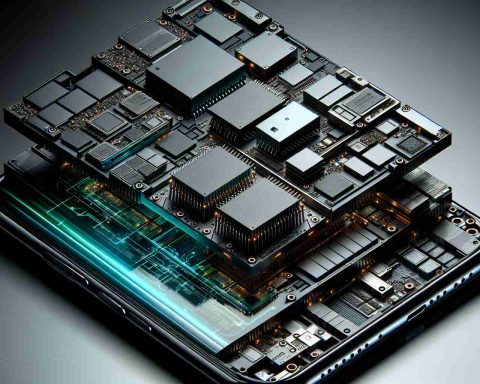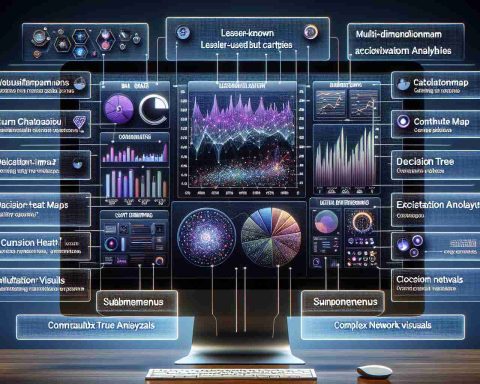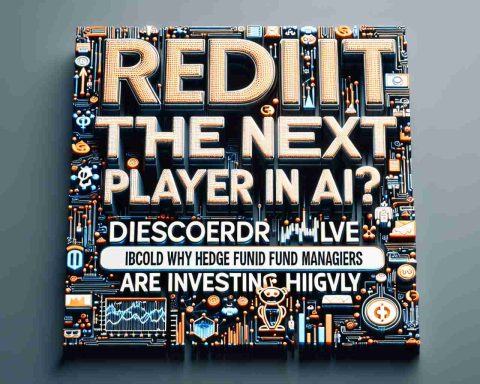Nvidia has taken the financial world by storm, with its third-quarter earnings surpassing even the wildest predictions and solidifying its position as a leader in the ongoing AI revolution. The chipmaker is setting ambitious targets, eyeing a market valuation of $10 trillion by the decade’s end, riding the AI boom’s coattails.
Nvidia’s Exceptional Growth Path
As the latest earnings report hit the streets, Nvidia’s stock surged, backed by the enthusiastic acclaim of Wall Street’s financial experts. Investors are singing praises of CEO Jensen Huang, whose leadership is bolstering Nvidia’s reputation as a pioneer in artificial intelligence. Analysts suggest the Blackwell chip series is poised to lead the semiconductor market, standing as a testament to the company’s continuous innovation.
Analysts’ Mixed Voices: Caution Amidst Optimism
Despite the optimism, some analysts caution about the potential risks tied to a burgeoning AI sector. Voices like DA Davidson’s Gil Luria hint at a possible “AI bubble,” noting concerns over Nvidia’s dependence on a limited customer base. Nevertheless, Luria, along with JP Morgan’s Harlan Sur and Truist’s William Stein, maintains a positive stance on Nvidia, raising their stock price targets while expressing confidence in the company’s robust demand and development capabilities.
Geopolitical Concerns and Their Impact
While Nvidia’s current ascent remains impressive, geopolitical shifts could pose challenges. Tensions between the US and China, especially under policies potentially enforced by political figures like Donald Trump, could impact Nvidia’s business operations in China, which currently significantly contribute to its revenue.
Despite such challenges, experts remain largely optimistic about Nvidia’s trajectory, underscoring the potential of its AI-driven path to reshape the tech landscape.
The Hidden Dynamics of Nvidia’s Meteoric Rise and Its Wider Implications
Unveiling New Dimensions of Nvidia’s Influence
Nvidia’s unprecedented success in the AI-driven marketplace is more than just a corporate milestone; it reverberates through various spheres, influencing not only technological advancements but also economic landscapes and societal interactions globally. Behind the spotlight of record earnings and optimistic market projections lies a tapestry of impacts and controversies. While the financial world focuses on the stock market ebbs and flows, there are deeper nuances affecting how communities and countries are adapting to—or even resisting—the AI revolution championed by Nvidia.
Implications on Global Job Markets
One significant and often under-explored aspect of Nvidia’s influence is its role in shaping job markets worldwide. As AI technologies become more pervasive, industries from manufacturing to healthcare are rapidly transforming. This evolution sparks debates: Will AI technologies necessitate a workforce that is more technologically adept, thus elevating skill requirements and potentially exacerbating the digital divide? On the flip side, AI could automate routine tasks, sparking fears of job displacement.
This transformation asks critical questions about the future of work: Will educational systems adapt swiftly enough to prepare future generations for these emerging roles, or will countries face widening socio-economic gaps?
The Environmental Footprint of AI Hardware
Another layer of concern pertains to the environmental impacts associated with Nvidia’s AI hardware manufacturing. The production and operation of AI chips consume significant energy and resources, contributing to carbon emissions. As Nvidia seeks to expand its market reach, the ecological footprint of AI processes is under scrutiny.
Could Nvidia and its peers innovate towards more sustainable practices, or will environmental costs rise with increased AI hardware deployment? This balance between technological prowess and ecological responsibility is crucial for Nvidia’s future trajectory.
AI Ethics and Data Privacy Controversies
Advancements driven by AI solutions highlight ethical considerations, especially in data privacy and surveillance. As Nvidia’s AI capabilities enable more sophisticated data processing and surveillance technologies, how will this affect the privacy of individuals and nations? Nations adopting such technologies could face regulatory challenges, prompting questions about who holds the power over vast, sensitive data sets and how that power is exercised responsibly.
The Double-Edged Sword of AI Influence
Nvidia’s rise showcases both advantages and challenges. On one hand, AI-driven innovations promise advancements in fields like medicine, transport, and disaster response, potentially enhancing quality of life globally. On the other hand, socio-economic and ethical concerns demand critical attention.
Advantages:
– Technological Advancements: AI technology can lead to life-saving innovations, predictive analytics in healthcare, and improved efficiencies in various industries.
– Economic Growth: Companies leveraging AI experience increased productivity, possibly leading to economic upliftment and job creation in high-tech sectors.
Disadvantages:
– Job Displacement: The rise of AI might render certain skills obsolete, posing a threat to workers in traditional roles.
– Privacy and Ethical Challenges: The use of powerful AI systems necessitates stringent data protection measures and ethical standards.
For further insights into the technological and socio-economic impacts of AI, you can explore authoritative resources such as BBC and Wired.
This multilayered impact of Nvidia’s journey urges stakeholders—from policymakers to educators—to ponder over proactive adaptations in education and regulatory frameworks to harness AI’s potential, while diligently managing its societal challenges.
























